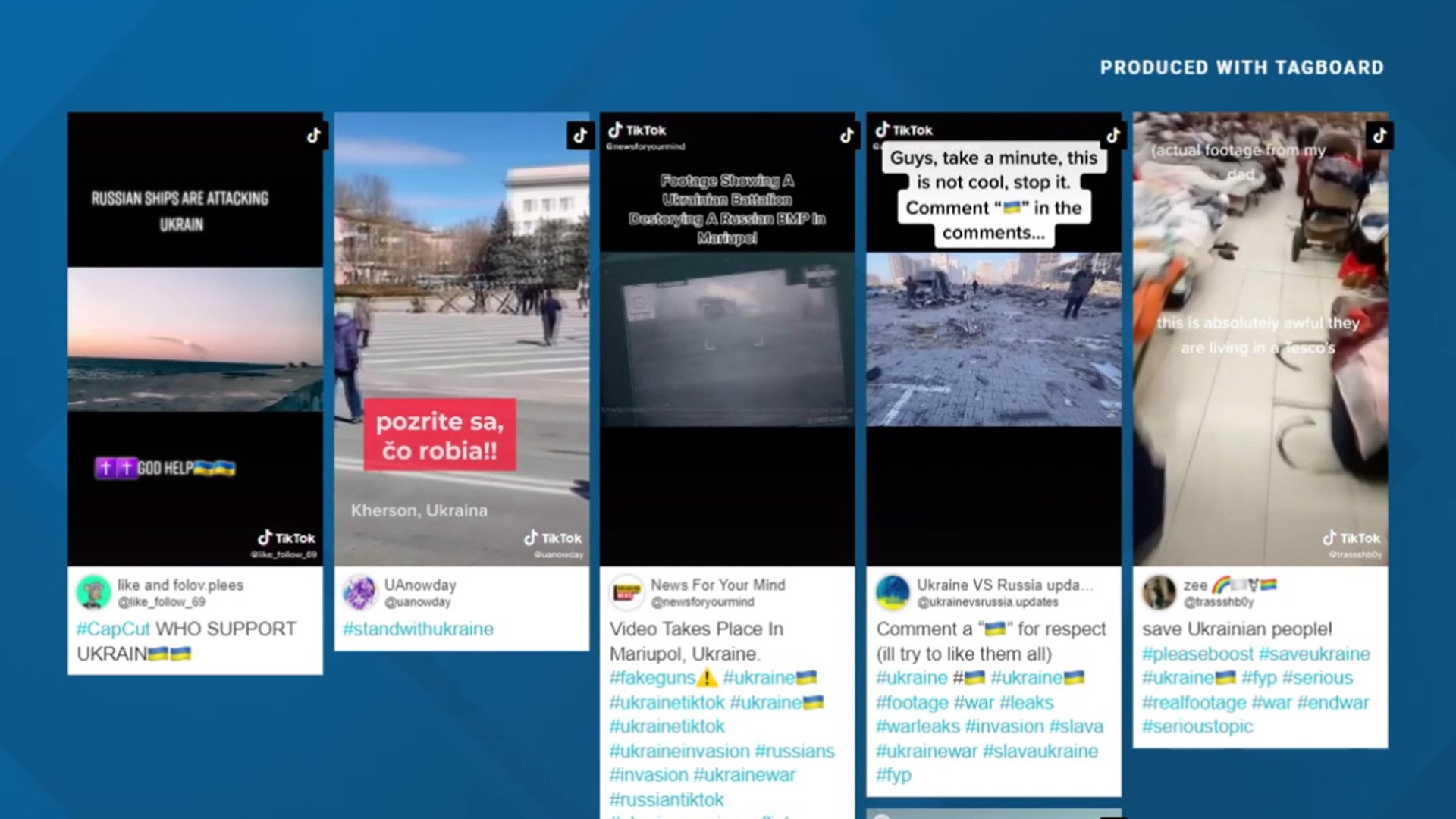SCRANTON, Pa. — When University of Scranton junior Julia Gavigan watches TikTok videos about the war in Ukraine, she says it's different than seeing or hearing about it on the news.
"These up close, personal accounts of people's homes being blown up by missiles or having to evacuate to neighboring countries. It's putting a more personal and human touch onto the conflict."
And it makes it hard to look away.
University of Scranton communications professor John Strain says many of his students are consuming a massive amount of content about the war on a daily basis.
"This is not some obscure thing that they can just go to the next silly video on TikTok. They're looking for the next feeling and emotion. They want to be engaged with what these individuals are going through."
But as senior Luke Shannon says, all that emotion also makes it tough for people to distinguish between fact and fiction.
"That makes people all the more susceptible to believe everything. Because you see something, and I think your first instinct is – if it's as terrible as some of the stuff that we are seeing is – your first instinct is to believe it."
But as we all know, you can't believe everything you see on the Internet.
And TikTok, in particular, makes it incredibly easy to produce fake or misleading content.
"One of the great things about TikTok is you can basically copy and paste audio from video to video. Unfortunately, what's really popular now on Tik Tok is that people are basically copying and pasting – I guess you could consider it military audio – audio of machine guns or people being very frightened and running away screaming even, like horrible things, and then just copying pasting it to videos," Gavigan said.
One example shown to students in a University of Scranton classroom was a set of TikTok videos, all using the exact same audio and all claiming to depict "live" scenes from the war.
"I don't think we can expect people to legitimately fact-check. I think we've been so socialized. But for things that matter, we need to take a step back," said Professor Strain.
Students suggest that you check the comments first. Maybe somebody did the fact-checking for you. Also, check out the account that posted the video to see if it's legitimate or not. And always stop and think before you share.
See more videos on our area’s connection to the Crisis in Ukraine.

